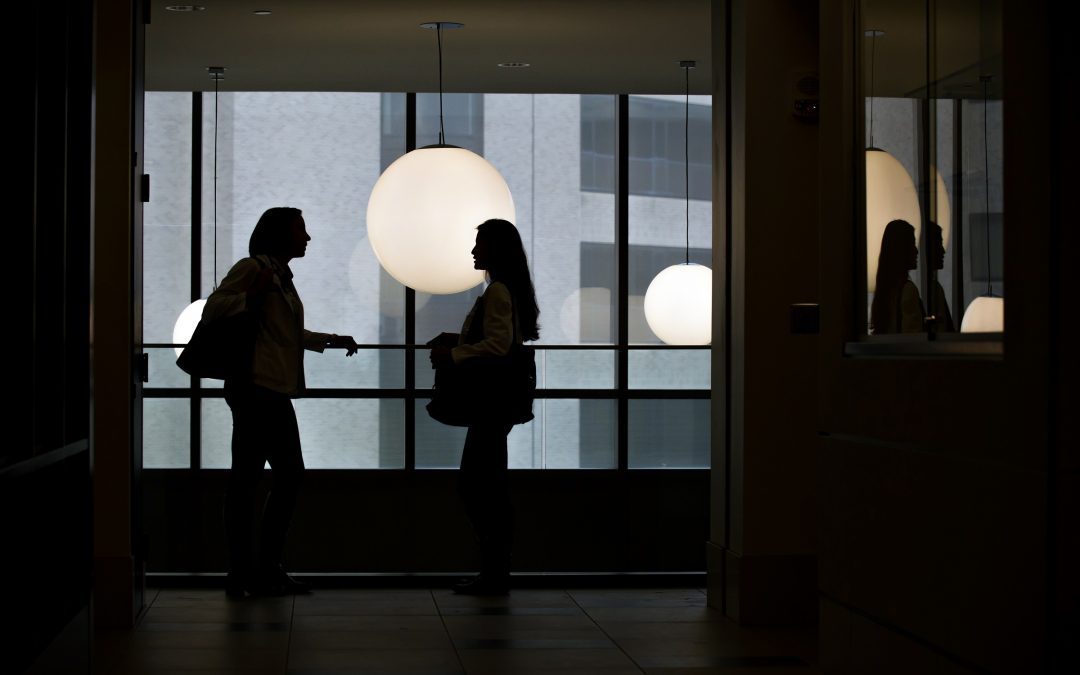As I look back over the last few years, I find myself overwhelmed with how much has changed. In February 2018, the last time I wrote a Dose of Reality blog, I was just returning to school after having been on a yearlong personal leave. I had started a peer support program the year prior out of a selfish need to be surrounded by classmates who would unconditionally support me through my struggles. After opening up about my depression and anxiety, I got overwhelming support from the medical school community, but felt that a more structured setup should be available for other students to seek out help before a crisis hits.
In 2018, with more stable footing, and a better handle on my mental health disabilities, I was able to complete the first-year curriculum and move into the second year Clinical Trunk. Three months into the Clinical Trunk I found myself in another crisis, having just failed my first shelf exam. I was spun into another unfortunate predicament, which led me to have to reevaluate my status at the medical school. Under policies that have now changed, I had to step out of school once again, and prove to not one, but two, committees that I should stay in the school. During this time I found that the peer support advocates were such an important support for me. Instead of having to overcome yet another barrier to finding support, it was easily available with a single email. I could reach out to fellow advocates without shame or guilt, and I knew that I would be able to get through the hardship because I wasn’t alone.
Now as 2020 begins, I have finished my core clinical trunk courses, and find myself returning to the passion that drew me to found the Peer Support Advocacy Program.
The program officially had its first training in July 2018, and has since trained over 30 medical students. The training curriculum was compiled with input from various members of the medical school and central campus communities. The training focuses on the importance of emotional intelligence and the ability to be a referral agent to students who contact the advocates. Our role as advocates is to first and foremost be a good listener, identify when we can make suggestions, and help determine when our peers need resources outside of our own capabilities.
Through suggestions of the initial group of advocates, a paging number was established so that medical students could reach out 24/7, and receive support within six hours of outreach. A listserv email was also created for students to reach out with generalized questions when they didn’t know where to go. The listserv and pager are meant to cater to medical students, who work at all hours of the day and night, and may need support outside of the Monday through Friday 8-5 window in which most faculty and staff who run the medical school work.
Over the course of 2018 and 2019, programming efforts were made to help place a focus on student well-being. This mainly occurred through drop-in meetings focused on de-stigmatizing mental health in medical students and other health care professionals, and through advocate outreach in the Taubman Health Sciences Library (THSL); mainly going around to check-in during intense study periods. Marketing efforts are still in the works, with printed fliers up around THSL, counselors and other staff referring to the group, and an online presence. A website was created about the program and includes how to get in contact with various trained advocates. I encourage anyone reading this to follow the link to look up some of the amazing, candid, biographies of some of our advocates.
Because of the public nature of this website, I received inquiries from different medical students around the US. I emailed and called with them to help them set up similar programs at their medical school. As I started learning more about the deficiency of this type of program nationwide, myself and two staff co-leads of the program created a poster presentation, and attended the central and southern GSA/OSR joint regional meeting in April 2019. At that conference, we met more students, staff and faculty who were interested in promoting the well-being of medical students at each of their campuses. We exchanged ideas with others around the nation, and look forward to partnering more intentionally with many of those we met to create a more robust national standard for peer-led wellness programming.
On our own campus, M-HOME has worked to have peer programs, including Winding Roads, M-PACT, Near-Peer Mentoring, eMpower and Peer Support Advocacy work together to create a more cohesive road map for students navigating the different peer support resources offered. These talks continue, as each of the groups finds its place within M-HOME and the larger medical school community.
Over the next year, I hope to see the Peer Support Advocacy Program continue to grow, especially in its marketing and visibility efforts. I have just recently connected with the new Michigan Medicine Office of Wellness, and hope that the growing collaboration with strengthen our efforts. I feel so grateful to my fellow advocates, who are dedicated to change the culture of medicine, to become a more inclusive and understanding environment for health care professionals with mental health concerns, conditions, and disabilities.
Have questions? Or need to talk? Email mhome.peersupport@umich.edu and one of our peer advocates will reach out to you, or check out our website.
[contact-form][contact-field label=”Name” type=”name” required=”true” /][contact-field label=”Email” type=”email” required=”true” /][contact-field label=”Website” type=”url” /][contact-field label=”Message” type=”textarea” /][/contact-form]
Don’t miss the next Dose of Reality.
Claire Collins is a third-year medical student at the University of Michigan Medical School. When she’s not on campus, she enjoys hanging with her husband and three dogs.

